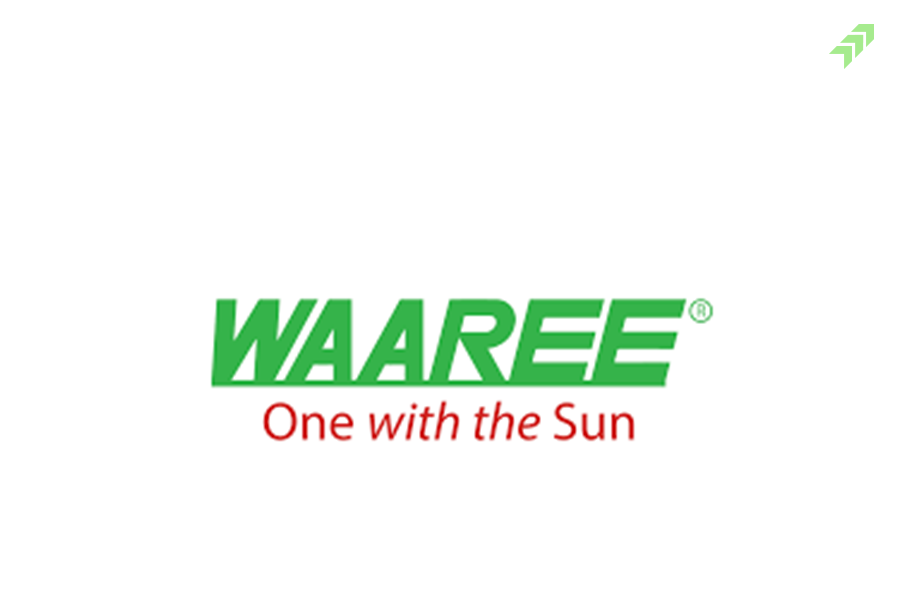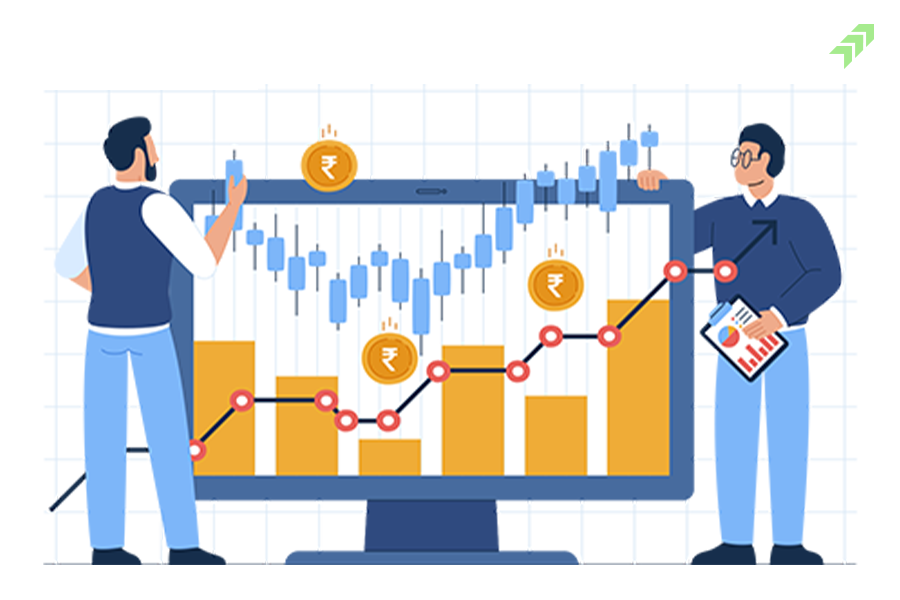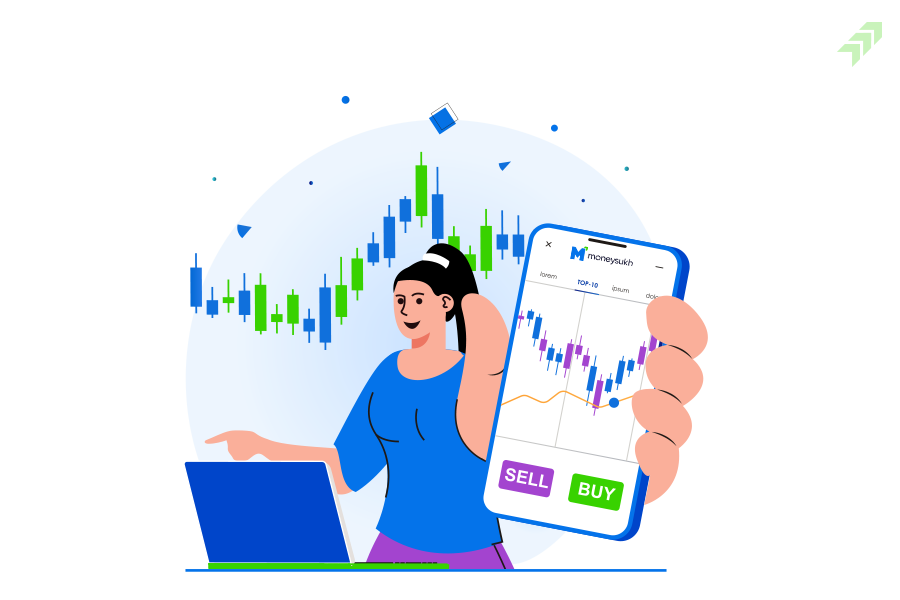A derivative is a contract entered into by two or more parties that derives its value from the performance of an underlying asset. They are usually leveraged instruments; the trader can purchase a large quantity of the underlying assets by paying an initial margin to the stockbroker, which increases their potential risks and rewards. Derivatives can be used on stocks, commodities, currencies, indices, exchange rates, or even interest rates as the underlying asset. Derivatives are used either to speculate or to hedge the position.
Types of Derivatives
- Futures
- Options
- Forwards
- Swaps
Futures
Futures are an exchange-traded standardized derivative agreement to buy or sell the underlying asset at a pre-determined price on a specific date. A stock, index, currency, or commodity can serve as the underlying asset. The contract is directly executed via a regulated and organized exchange and the parties of the futures contract are obligated to carry out the terms of the agreement. Futures are primarily used to hedge commodity price volatility or to profit from price movements, as opposed to buying or selling the actual cash commodity, as is done with stocks. Every day, the value of future contracts is marked to market. That is, the contract value is adjusted based on market movements until the expiration date
High leverage
In the spot market, if you want to buy 1 lot of security, you need to have the full amount in your bank account to place an order, whereas you can buy/sell a lot more shares of futures with a certain amount of money. For example, if the margin is fixed at 25% for futures in a stock, one could buy/sell 4x times more shares in futures than in equity.
Liquidity
Liquidity performs a big role in the determination of the price of a security. A highly liquid asset will trade at / very close to its intrinsic value. Futures markets contracts in currencies, indexes, and commonly traded commodities offer high liquidity.
Options
An options contract gives the right to buyer but not the obligation to buy or sell the underlying asset within a specified date (expiration date) and at a specific price (strike price). Options are standardized derivative contracts that derive their value from an underlying asset. The buyer is not required to exercise the option. The option writer is the person who sells options. The strike price is the specified price. You can exercise American options at any time before the option period expires. European options, on the other hand, can only be exercised on the expiration date
Options are of two types:
- Call
- Put
- Call
A call options contract grants the buyer the right, but not the obligation, to buy a specific quantity of underlying assets at a specific price (strike price) on a specific date (known as the expiration date). The contract specified price is known as the strike price, and the time period during which the sale can be made is known as the expiration date. You must pay a premium to buy a call option; the premium is the maximum amount you can lose. The call holder (buyer) is profitable when the price of underlying asset increases - Put
A put options contract grants the buyer the right, but not the obligation, to sell a specific quantity of underlying assets at a specific price (strike price) by a specified date (known as the expiration date). Put options can be purchased on a variety of assets, including stocks, indexes, commodities, and currencies. Changes in the underlying asset's price, the option strike price, time decay, interest rates, and volatility all have an impact on put option prices. They gain value as the underlying asset's price falls, volatility of the underlying asset price rises, and interest rates fall. It loses value as the underlying asset's price rises, the volatility of the underlying asset's price decreases, interest rates rise, and the expiration date approaches
- Call
Types of option contract
American contracts
It is a type of options contract that allows option holders to exercise their rights to buy or sell up until the expiration date. An American-style option allows investors to profit as soon as the stock price rises
European contract
It is an option contract (call or put option) that gives the buyer or seller a chance to exercise the contract only at the maturity date. Even if the price of the asset moves in a favorable or unfavorable direction, the holder of the contract cannot take advantage or limit losses
Bermuda Option
Bermuda contracts are option contracts that can be exercised on prespecified dates after the lock-in period has ended. Bermuda contract are better than European contracts as the buyer can exercise the contract early but only at set dates. With the same terms, the premium of this contract is priced higher than European contract
Options Greeks
Option Greeks are financial variable that measures the sensitivity of an option's price to its underlying determining parameters. The Greeks are used in option portfolio analysis and sensitivity analysis. Following are the five option variables: - Greeks are Delta, Gamma, Vega, and Theta
Delta
Delta measures the change in option price (premium) to the expected move based on a one-rupee change (up or down) in the underlying stock or index.
Gamma
It helps in measuring the variation of the delta with the change in prices of the underlying asset. It is used by traders to forecast price movements in the underlying asset
Vega
This calculates the rate of change of premium depending upon the change in volatility
Theta
It helps in knowing the effect on premium concerning days or time left for expiry
Forwards
Forwards are similar to futures contracts in that the holder is obligated to perform the contract. Forward contracts are legally binding contracts between two parties to buy or sell an asset at a specific price and a specified date. They can be tailored to the specific needs of two parties and are hence not traded on exchange. They are traded over-the-counter between two parties, so no initial margin is required. In the absence of a regulated trading platform, it is more difficult to find two parties willing to enter into a contract.
The risk involved in a forward contract
Counterparty risks
The probability of expected loss that the other party in the contract will not honour part of the deal and will default on contractual obligations is referred to as counterparty risk. Counterparty risk is particularly relevant in derivatives markets, where the expected amount of losses can be maximised by the leverage component and far exceed its notional value.
Liquidity risk
Forward contracts are an over-the-counter contract which is made specifically according to the need and terms agreed upon by the buyer and are hence illiquid.
Swaps
Swaps are financial derivative contracts in which two parties exchange financial obligations. The cash flows are based on a notional principal amount agreed upon by both parties without any principal exchange. The amount of cash flows is determined by an interest rate. One cash flow is generally fixed, while the other fluctuates based on a benchmark interest rate. The most commonly used category is interest rate swaps. Swaps are over-the-counter contracts between businesses or financial institutions that are not traded on stock exchanges
Types of swaps
Interest Rate Swaps
Interest rate swaps are over-the-counter forward derivative contracts between two parties that exchange one stream of future interest payments for another currency based on a predetermined amount over a specified time
Debt-Equity Swaps
A debt/equity swap is a refinancing deal in which a company's or individual's obligations debts are exchanged for equity. In the case of a publicly traded company, this usually involves the exchange of bonds for stock. They are typically carried out during bankruptcies, and the swap ratio between debt and equity can vary depending on the circumstances. The value of the stocks and bonds being exchanged is typically determined by the market condition of company
Credit Default Swap
Credit default swap is an agreement similar to an insurance contract between two partiers providing the buyer with protection against specific risks. CDSs are traded over-the-counter and are frequently used to hedge risk by transferring credit exposure on fixed income products. They are quoted in credit spreads. The buyer of the CDS, make regular payment to the protection seller and expect to benefit from contract, when the underlying asset defaults on its obligation. Because they are traded over the counter and customized between the involved counterparties, they are opaque, illiquid, and difficult for regulators to track
Currency Swaps
A currency swap contract is a two-party derivative contract that involves the exchange of interest payments in one currency and principal amounts in another. The equivalent principal amounts are exchanged at the spot rate at the start of the swap. Throughout the duration of the swap, each party pays interest on the swapped principal loan amount. The principal amounts are swapped back at the end of the swap at either the prevailing spot rate or a pre-agreed rate, such as the rate of the original principal exchange. Using the original rate would eliminate the swap's transaction risk
Commodity Swaps
It is a type of derivative contract in which two parties agree to exchange cash flows based on the underlying commodity's price. Commodity swaps are commonly used to protect against price fluctuations in commodity markets like metals and oil. Commodity swaps allow producers and consumers to lock in a fixed price for the underlying commodity. These contracts are not traded on exchanges; rather, they are customised contracts carried out outside of formal exchanges, away from the regulator's gaze
Participant in derivative market
Hedgers
These are stock market traders who are wary of taking risks. They intend to use derivative markets to protect their investment portfolio from market risk and price fluctuations. They accomplish this by taking an opposing position in the derivatives market. In this way, they transfer the risk of loss to those who are willing to accept it. They must pay a premium to the risk-taker in exchange for the available hedging. Assume you own 10 shares of ABC Company, which are currently valued at Rs. 100. You intend to sell these shares in one month. However, you do not want to incur losses as a result of a market price decline. At the same time, you don't want to miss out on future profits by selling them at a higher price. A put option for a small premium is a way out for you.
Speculator
Speculators are derivative market risk-takers. Speculation requires a trader to enter a market and bet on whether the price of a security or asset will rise or fall. They try to make money by using derivatives with a lot of leverage. In comparison to the hedgers, they have a completely opposing viewpoint. This difference of opinion allows them to profit handsomely if their bets are correct. In the above example of hedger, you purchased a put option to protect yourself from a drop in stock prices. The speculator, your counterparty, will bet that the stock price will not fall. If stock prices do not fall, you will not exercise your put option. As a result, the speculator keeps the premium and profits
Arbitrageurs
Arbitrageurs are investors who seek to profit from market inefficiencies. These inefficiencies can happen in any aspect of the market, including pricing, dividends, and regulation. They exploit market inefficiencies by simultaneously purchasing low-priced securities in one market and selling them at a higher price in another. Only when the same security is quoted at different prices in different markets, arbitrager occurs
Basic points to trade in derivative market
- Before you can trade in derivatives markets, you must first understand how they work. The strategies used in derivatives are completely different from those used in the stock market
- Before you can begin trading in the derivative market, you must first deposit a margin amount. The margin cannot be withdrawn until the trade has been settled. Furthermore, when the amount falls below the minimum, you must replenish it
- You must have an active trading account that allows you to trade derivatives. You can place orders online or over the phone if you use the services of a broker
- You must consider factors such as cash on hand, margin requirements, contract price, and underlying share price when selecting stocks. Check that everything is within your funding parameters
- You can stay invested until the trade expires. In this case, either pay the entire outstanding amount or engage in a counter-trade
Basic terms in derivatives
Long Position
Long position is opposite of a short position. In the financial market, if an investor/trader is going long on a position, it means he/she is bullish in the trend of the security and buying the underlying asset with the expectation of the price to increase.
Short Position
The opposite of going long is called short. When an investor is bearish on a particular security, he sells or short the underlying asset thinking the prices will go down in near future. For shorting a stock, investor can borrow stock from their broker, investment bank, or other financial institution in exchange for a fee
Spot Contract
A contract which allows you to buy or sell the underlying asset at the current market rate, also known as the spot price. Commodities, currency, and bonds are the most commonly associated with spot contracts
Expiration
In trading, an expiration date/expiry date is the point at which the contract between the buyer and seller is settled. In other words, a trader must either settle in cash or make physical delivery, or roll over their position to a contract with a longer maturity date. The maturities of the option/future contract are listed below.
Near month (maturing after 1 month)
Middle Month (maturing after 2 months)
Far Month (maturing after 3 months
Before the option expire, the trader has three options to exercise
- Choose to exercise the price
- Close the position in order to realize profit or loss
- Let the contract expire worthlessly
Market Maker
A market maker's primary responsibility is to provide liquidity to the market by buying and selling securities. The market would be relatively illiquid without the presence of market marker. A market maker profits from the difference in the bid-ask spread and helps to keep financial markets liquid
Bid-Ask Spread
A bid-ask spread is the difference between a security's ask (selling) and bid (buying) price. A bid price is a price at which buyers are willing to buy at the asking price. Market forces drive bid-ask spreads. A popular asset will have narrow bid-ask spreads. Assets with a wide bid-ask spread, on the other hand, may have low demand, influencing larger price differences. Wider spreads indicate that the stock is less traded and thus less liquid
Strike Price
The price at which the put or call option can be exercised is called the strike price
Spot Price
In finance, a strike price is a price on which the owner buys/sells the security. The strike price is usually set about the spot prices and market conditions
Open interest
Open interest is the sum of all outstanding contract numbers at the end of each trading day (OI). Open interest rises when investors enter into new contracts, but falls when investors withdraw money and sell existing contracts. Open interest increases by one position when a buyer and a seller initiate a new market position.
Option Premium
The option premium is the amount paid by the option buyer to the option seller at the time of entering the contract. Even if you do not exercise the option and allow the contract to lapse, the option premium will not be refunded to you. The option buyer's profit is unlimited to the upside, but the option seller's profit is limited to the premium received



















6 Comments
[…] market, the INR-USD pair has become the most popular pair and denominated in the currency derivatives market. You can make positions in currency derivatives for trading and speculation for managing […]
[…] down beyond all these limits, the trading is halted not only in the equity market but also in the derivatives […]
[…] there are derivatives in the stock market where a huge volume of trading takes place. And in the derivatives market, Future and Option (F&O) contracts are traded in lots of underlying securities and main […]
[…] Also Read: Derivatives: Types, Participants & Basic Terminologies in Market […]
[…] the long unwinding in the stock market is possible in the derivatives market (F&O segment). Because in future and options, the contract of the underlying security is […]
[…] In the stock market world, when you invest your money in stocks, or buy shares of any company with the expectation that it will rise and you can sell at a higher point and book some profits. It is simply the act of selling the security to gain some profits by liquidating your investment in the stock market whether it’s in the cash market or derivatives segment. […]